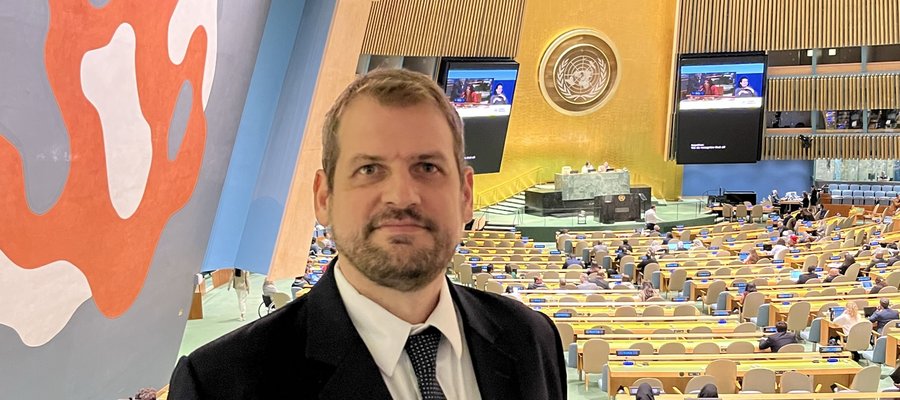Mathias Duck's Statement at COSP16 (CRPD Conference 2023)

The Leprosy Mission's Global Advocacy Lead, Mathias Duck, was due to give the below statement at the UN's CRPD Conference in New York in June 2023. Sadly the running order for the conference's General Debate did not allow sufficient time for the statement to be made live at the conference, but Mathias' remarks have been entered online in the official record of the conference.
--
Ladies and Gentlemen, distinguished guests, I’d like to thank you for this opportunity as a person affected by leprosy to represent persons affected by leprosy and persons affected by Neglected Tropical Diseases at the CRPD Conference today.
I am grateful for this opportunity because one of the official themes of this conference is reaching the under-represented groups of persons with disability. Beyond that, we have heard a lot about some unofficial themes. These include the need for a much better engagement of OPDs, an emphasis on localisation, and leaving no one behind in the 2030 agenda.
Before I stood up and said I was a person affected by leprosy, you might have thought that leprosy was only an ancient disease. Or perhaps you had heard about it as a modern disease, but you did not know its relevance to why we are here today.
Let me tell you, it could not be more relevant to these official and unofficial themes.
Across the world there are 4 million people living with disability because of leprosy and millions more who live with what the UN’s Special Rapporteur on leprosy discrimination has called the ‘impairing effects of leprosy-related stigmatization’.
This is a significant constituency of people that are primarily living amongst the poorest in the global south. When we talk about those most at risk of being left behind, it is persons affected by leprosy that we mean.
That is because it is a community of people who often live in areas without access to basic health, transportation, and digital infrastructure. There are challenges with water and sanitation, employment and education, stigma and discrimination. Sadly, too many people I have met who have been diagnosed with leprosy have faced outright rejection from their family members. I have heard of people forced to live on the edge of their villages, in jungles and in caves. This is what we mean when we talk about persons with disabilities who are being left behind.
But I am not here to tell you sad stories and ask for your sympathy. This is the CRPD Conference, this is about rights and social justice. I am here to tell you about a community of people who are organising and claiming back their rights.
Two of the other unofficial themes of this conference have been working more closely with OPDs and localisation. Across the world there are organisations of persons affected by leprosy who have worked their way from humble begins to become professional organisations. They have helped their communities through the darkest days of the pandemic and earned a respect at the local level that few in this room could dream of.
If you are asking how to implement the CRPD in Asia, Africa, and my home continent of South America, please know that there are organisations of persons affected by leprosy who are both a tremendous resource and are searching for ways to have their rights met under the CRPD. At the moment they know they are in danger of being left behind. My message from them to you is this: they will not wait, let’s do it now.